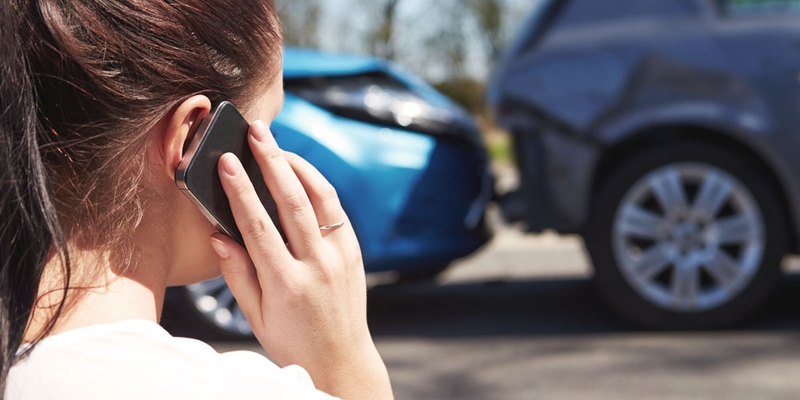
If you are not redirected within 30 seconds, please click here to continue.
Samedi: 10h – 16h HAE

If you are not redirected within 30 seconds, please click here to continue.
If you are not redirected within 30 seconds, please click here to continue.
42% of Ontarians would consider a cash settlement after a collision, RATESDOTCA survey reveals

A minor fender-bender, a dinged door, or a dent can seem insignificant compared to a serious automobile collision. And, if no one is injured, a cash settlement for any damage may cross your mind. It’s quick, straightforward, and the best part: your auto insurance company never needs to know about it — well, not quite.
While it doesn’t always make sense to file a claim after a collision, particularly if the damage costs less to repair than your deductible is worth, you should always inform your auto insurance company of any collisions you’re involved in. If you don’t, a premium increase could be the least of your worries. You could risk voiding your policy altogether.
Despite these risks, however, many drivers would consider a cash settlement after a collision, according to a recent Rates.ca survey. Based on online survey data of 1,122 Ontarians aged 18 to 50+ from January 12-17, 2022, we get a sense of who is considering skipping the auto insurance claims process for cash, and the value of the settlements.
Women more likely than men to consider a cash settlement if it's equal to or less than their deductible
According to our survey, 42% of Ontario drivers would consider accepting or paying cash for damages instead of making an auto insurance claim — possibly, in anticipation of a premium increase.
Of those drivers, 59% would consider a cash settlement only if it was equal to or less than their insurance deductible. Those who identify as female were more likely to state this answer than those who identify as male, at 58% and 42%, respectively. The same percentage of either gender would also consider a cash settlement outright.
Cash may appear convenient; however, offering money out of pocket can be seen as an admission of guilt. It’s best to leave fault determination to the professionals.
Despite the number of drivers who would consider settling outside of insurance after a collision, most survey respondents (83%) report that they have not paid or received any payment for damage resulting from an automobile collision.
However, of the Ontarians who have paid or received a cash settlement, nearly 34% have exchanged amounts totalling $1,000 or more, with 12% exchanging amounts more than $2,000. And while we don’t know for certain that these collisions went unreported, we assume that the drivers at least did not make a claim with their insurance provider.
The survey also found that females were more likely to pay or receive amounts under $1,000 than males, at 58% and 42%, respectively. In comparison, males were more likely to have paid or received amounts more than $1,000. Of those who answered $2,000 or more — the collision reporting threshold in the province — 60% were male. Only 40% of females, on the other hand, reported doing the same.
Drivers must report a collision to the police if anyone is injured, damage to both vehicles appears to be more than $2,000, or a criminal offence is suspected; it’s the law.
How fault is determined and can impact your insurance rate
Overall, 44% of survey respondents have made an insurance claim after an automobile collision. That doesn’t mean, however, that these drivers will pay more for auto insurance.
Ontario auto insurance runs under a no-fault system, meaning drivers deal with their own insurance companies after a collision rather than a third party, regardless of who is at fault. When you make a claim, the insurance company will use the Fault Determination Rules to determine whether you are partially, fully, or not at fault for a collision. If you are not at fault, you won’t have to pay your deductible, and your premium won’t increase.
In most cases, if you are found even partially at fault, you will have to pay your deductible, and you may pay a surcharge on your auto insurance premium for up to six years — the amount of time the collision stays on your driving record.
There is an exception, however.
When an at-fault collision won’t impact your insurance rate
In Ontario, insurance providers can’t use a minor at-fault collision to increase your premium if it meets the following criteria:
- The collision happened on or after June 1, 2016.
- There are no injuries, and the damage sustained to each vehicle is less than $2,000.
- None of the people involved submitted an insurance claim for payment.
- The at-fault driver pays for all the damage.
In this case, your first step would be to report the collision to your insurance provider. If you are at fault, you would not file a claim and pay the repair shop directly rather than pay the other driver in cash. Make sure to keep the receipt or invoice for the payment.
This directive only applies to one minor at-fault collision every three years. Either way, you should always report any vehicle damage to your insurance company.
Honesty is the best policy when it comes to collisions
If you file a claim, your insurance company is there to help, unlike a straight cash settlement, which can open you up to liability down the road. Someone could come back months later and sue you for injuries, and your insurance provider could potentially not cover you because you never reported it or made a claim.
Additionally, nothing stops the other driver from reporting the collision and filing a claim anyway. Your insurance provider will find out, and it won’t look good if they didn’t hear from you first. If your insurance company chooses to cancel your policy, you may end up paying more somewhere else since you lied.
“It pays to be honest with your insurance broker or provider,” says Tanisha Kishan, Rates.ca expert and chartered insurance professional. “Not only does being upfront about a collision help get you the coverage you may need, but it also gives your insurance advisor the information they need to offer you the best advice for your situation.”
Collisions happen, and if you’re involved in one, report it to the nearest Collision Reporting Centre and contact your insurance company right away. Your insurance adjuster can walk you through the claims process and offer advice. Depending on your situation, it may not make sense to file a claim; however, it is best practice to let your insurance provider know about damage to ensure you have the coverage you need when you need it.
Methodology
Rates.ca conducted an online survey of 1,122 Ontarians from January 12-17, 2022. The sample’s ages ranged from 18-50+ years old.
Don't waste time calling around for auto insurance
Use Rates.ca to shop around, and compare multiple quotes at the same time.
Get money-saving tips in your inbox.
Stay on top of personal finance tips from our money experts!










